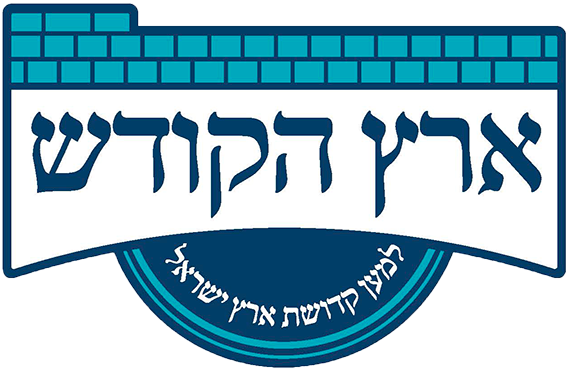Kariv, as chairman of the Knesset Constitution Committee, waved the flag of “rule of law” as he filed countless briefs with the High Court against the chareidi sector. He fought against kosher cell phones, separate seating on public transport, curriculum independence in chareidi schools, and the most recent draft law — worked out as a compromise among competing Knesset factions, and nullified as a result of Kariv’s action. All because of the exacting legal standards he applied to chareidi causes.
Apparently he did not hold himself to those same standards. He has now been caught in an embarrassing conflict of interest.
Perhaps unbeknownst to his fellow Labor MKs in the governing coalition, Kariv was also on the board of “Panim,” a nonprofit purporting to serve as an “umbrella” for several Reform-associated organizations. Meanwhile, Kariv’s fellow Labor Party member Nachman Shai was serving as minister of Diaspora affairs.
Kariv is believed to have assisted Panim in applying for a NIS 30 million grant from the Ministry of Diaspora Affairs. Kariv’s cohort Shai, as minister, mysteriously waived the normal protocols that would have allowed any organization to apply for the money, and gave the whole pot to Panim. The grant was the ministry’s share of a planned NIS 60 million “joint venture” with Panim for a “Jewish renewal” program.
Degel HaTorah MK Uri Maklev wrote a letter to new attorney general Gali Baharav-Miara in protest, demanding that the grant be suspended immediately until its legality has been determined — especially in light of the fact that the whole Reform movement has signed on to the Labor Party, which is hoping to gain seats in the upcoming November ballot.
“In broad daylight, and in front of the whole nation, the Diaspora Ministry transferred tens of millions of shekels to Reform groups during a stormy election season, while the representatives of these entities are running in the elections,” Maklev wrote. “While the citizens of Israel are struggling with the rising cost of living, the Diaspora Ministry decides to allocate millions to wealthy groups, and the Reform movement does nothing with these funds besides polarizing the nation.”
Taking the Spear from the Egyptian
It all began a year ago, in August 2021, when the coalition agreement was signed by then prime minister Naftali Bennett and the Labor Party, of which Reform’s Gilad Kariv is a member and MK. One section of that agreement stipulated that the Ministry of Diaspora Jewry would transfer NIS 60 million to the “Movement for Jewish Renewal.” This was unprecedented; until then, this movement had never received any budget allocations.
But Rabbi Pesach Lerner, chairman of the Eretz Hakodesh faction in the World Zionist Congress, discovered the arrangement, and began tracing all the connections between the players involved, and monitoring the flow of money. It was a modus operandi lifted directly from the playbook of Kariv and his friends.
After the coalition agreement was signed, Eretz Hakodesh established a special legal department, headed by a well-known former prosecutor from the office of the state attorney general, with the objective of honing in on any tenders published by the Diaspora Ministry.
Then, after the Knesset was dispersed, an item appeared in the media about the “Movement for Jewish Renewal,” under the auspices of the Panim organization, entering a joint venture with the Diaspora Ministry worth NIS 60 million.
This arrangement had the convenient feature that as a “joint venture,” it was not subject to the normal government protocols that require a ministry to seek a range of bidders for a tender, to ensure the taxpayers get the best deal possible.
“When we saw this item, we realized that the Reform group had actually worked underhandedly to win the entire allocation,” Rabbi Lerner explains. “Our lawyer checked and found that Panim is an organization with just two members, and its entire budget amounts to a bit more than NIS 600,000 per year. Almost half of that budget is designated for the salaries of these two members.”
Rabbi Lerner says the joint venture was for a total of NIS 60 million; the Diaspora Ministry supplied half, and the Panim organization would be required to raise the other half.
“But the most earthshaking revelation was the fact that Labor MK Gilad Kariv himself was, in the not-so-distant past, a member of the board of Panim,” he continues. “If that’s not enough, we found that one of the heads of the organization, one Yotam Barom, boasted on social media a number of times in the last year that Gilad Kariv instructed him to write the regulations to make it possible for the organization to win this joint initiative. So the fact that Panim won this money was a severe conflict of interest, even bordering on the criminal.”
Given Kariv’s relentless hounding of chareidi causes using legal tools, it is curious that he was not more careful about entering into such an obviously questionable arrangement. Why was he not afraid to conduct himself this way?
“It’s an excellent question,” says Rabbi Lerner. “Kariv is very experienced, but he was sure no one would look into this and find the incriminating evidence. Maybe his exuberance at being, for the first time in his life, not only a member of the government, but also a political player who managed to bring home an achievement for the Reform movement from the state budget, led him to be arrogant.”
Rabbi Lerner also points out that Eretz Hakodesh was able to turn Kariv’s own tactics against him — for decades, the Reform movement, under Kariv’s guidance, had been appealing to the High Court against the chareidi community, in any matter connected to Yiddishkeit, including day care centers, kosher cell phones, and the draft law.
“And then we took the spear from the hand of the Egyptian, so to speak,” says Rabbi Lerner.
Importing Reform Failure to Israel
The contract between the Diaspora Ministry and Panim was signed on July 7, 2022, when the government had already ceased to function. The details of the joint venture beggar the imagination.
As an example, the contract states that Panim must enroll 700,000 participants in programs intended to influence them toward Reform ideals. These are huge numbers, and anyone familiar with Reform activities in Israel knows that it is unrealistic.
In order to reach this goal, the contract stipulates that Panim would plan new projects like “batei medrash” — study groups that would participate in lectures, workshops, and events and tours. There would also be programs for leadership training, cultural events, and community activities scheduled around the year and around the life cycle, all in the spirit of “Jewish renewal.” In other words, there would be anti-Torah alternatives to bar mitzvahs, marriage and divorce, burial and funerals, Yamim Tovim and other special dates — none of which had ever been seen in Israel.
There would be special activities for speakers of foreign languages, and content relating to the traditions of Spanish Jewry, to draw the traditional Eastern communities, which had never participated in Reform rituals. If that was not enough, the contract states that Jewish renewal elements would work together with the local authorities in order to give a tailwind to the heterodox movements all over the country. Every such clause would receive millions of shekels in funding through this contract.
“These huge sums were meant to fund this intensive activity, which had never been carried out by the Reform in Israel,” notes Eretz Hakodesh director Rabbi Nechemia Malinowitz. “Although the impression is widespread that the heterodox movements have endless sums of money at their disposal, that was not the case with regard to their activities in Israel. Very wealthy Conservative and Reform Jews prefer to channel their money to their crumbling communities abroad, so they don’t have enough to direct to Israel.”
That made the prospect of Israeli government funding irresistible to these activists, says Rabbi Malinowitz.
“When there were millions allocated to disseminate their content, that became a significant factor, especially in light of the fact that this contract was signed in an election period, when there was no functioning government.”
The Diaspora Ministry Response
“Involvement in the field of Jewish renewal, whose goal is to enable all Jews in Israel to connect to their unique Jewish traditions and cultures, has been tasked to the Diaspora Ministry. After examining the subject with all those involved, and the relevant entities in the government, including the Justice Ministry, it was decided to act according to Clause 8 of the opinion of the deputy attorney general, which states that the subject is within the purview of the ministry regarding the scope of the initiative, even without a government decision. As such, the Diaspora Ministry has worked to advance the initiative with the agreement of all the elements, including the Justice and Finance Ministries, and in accordance with all laws and regulations.”
Response from MK Gilad Kariv
“When I was elected to Knesset, I ended my active involvement on the board of the Panim organization. Formally, my tenure ended at the end of 2021. The joint initiative of the Diaspora Ministry with Panim came to be during 2022. The selection of Panim and the connection with it were carried out by the professional echelons of the Diaspora Ministry without my involvement in the work process.
“I am very proud of my contribution to the government decision (as part of the budget discussions) to allocate a significant budget to encourage the renewal of Jewish pluralism in Israel, and of my deep bonds with the renewal organizations. For many decades, the governments of Israel have discriminated against secular and liberal Jewry with regard to resources, tenders and joint initiatives. All the government entities engaging in Jewish culture work with a clear Orthodox orientation, and I welcome the fact that for the first time, there is a government response to other manifestations of Israeli Judaism.”






